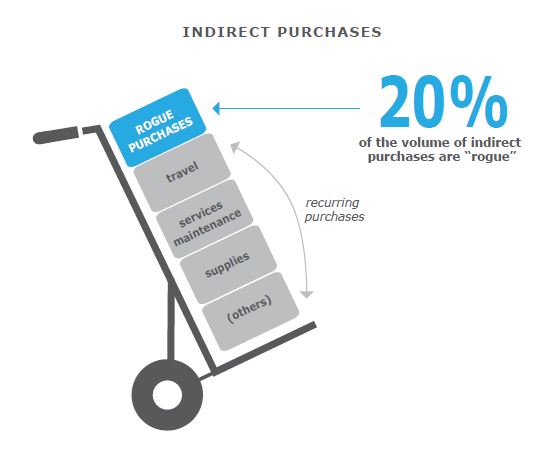After optimising their strategic purchases, for the last ten years companies have been focusing on their non-strategic purchasing, also known as indirect purchases. We’re talking about the products and services they need in order to do business, but which do not directly involve their core services. Within this huge category, there is a family of purchases that have seen practically no optimisation: the “ad-hoc” purchases, which represent 20% of the volume of indirect spend. This area can be so unstructured that they are often referred to as “rogue” purchases. They are however full of potential efficiencies if they are organised using an appropriate method.
Controlling "rogue" purchases, a major impact!
Companies with a Purchasing Department have often standardised the recurring portion of their indirect purchasing, which, in particular, can include travel costs, cleaning services, restaurants, and sometimes tools, personal protective equipment, IT hardware, and office supplies.
Many initiatives have been implemented in this direction but we believe at Manutan that there is a real source of savings, yet largely untapped: the rationalisation of “ad-hoc” purchases we call "rogue” purchases as their management is deconstructed.
Manutan is convinced that controlling these "rogue” purchases is a major factor in the competitiveness for European companies. The Manutan management and all employees are happy to share this white paper with you.










